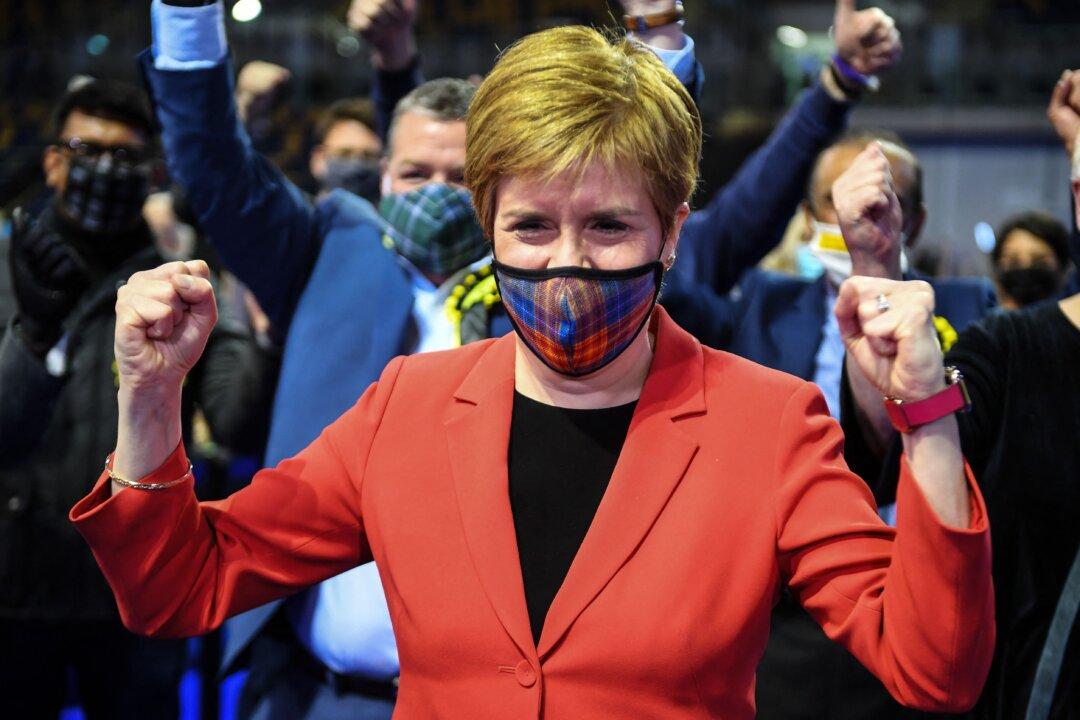GLASGOW, Scotland—Scotland’s First Minister Nicola Sturgeon vowed on Saturday to press ahead with plans for a new referendum on leaving the United Kingdom after saying there was no doubt elections to the Scottish parliament would return a pro-independence majority.
In a rebuke to British Prime Minister Boris Johnson who has said he would block a secession vote, Sturgeon said it would be absurd for any politician in London to try to block a vote.





